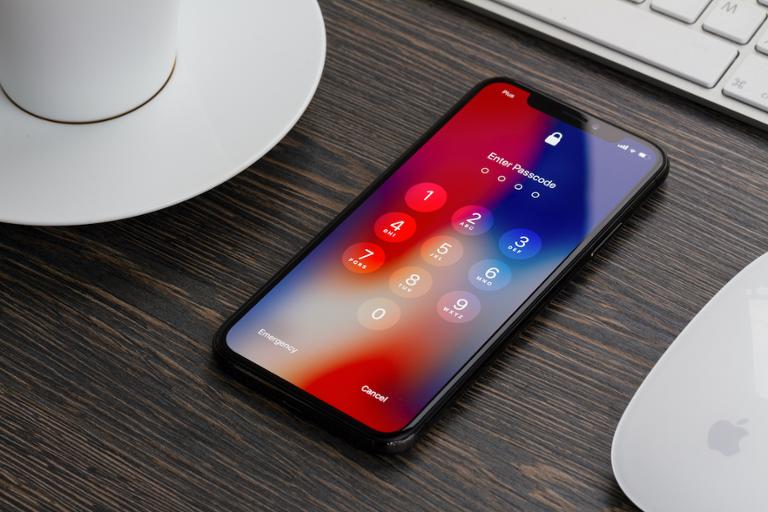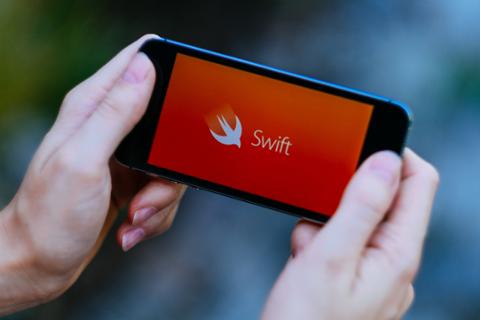For developers interested in mobile apps and services, the iOS ecosystem offers lots of opportunities. Millions of people use their iPhones and iPads constantly, and they’re willing to download (and often pay for) all kinds of apps. If you can master the principles of iOS app development, you’ll have your pick of jobs and freelance gigs.
Once you master the intricacies of iOS-related tools and languages, how much does an iOS developer role actually pay? Let’s break it down, along with some other crucial things to know about iOS.
What is iOS?
In 2007, Apple introduced the iPhone, which revolutionized mobile devices (and the development of apps running on mobile devices). The iPhone ran iOS, Apple’s mobile operating system. Later Apple devices such as the iPad and later versions of the iPod Touch would also rely on iOS.
The true power of Apple iOS resides in its associated App Store and SDK (software development kit), which allow third-party developers to build an incredible number of apps for virtually every industry and purpose. Thanks to apps, iOS can do everything from hail a cab via a rideshare service to play increasingly sophisticated games. This flexibility has made the iPhone one of the bestselling consumer devices of all time, and Apple one of the largest companies in the world.
Beyond app-building, iOS has steadily iterated over the years, gaining a variety of new features such as Siri, a voice-activated digital assistant. But for developers and companies everywhere, the platform’s main attraction is the iOS SDK and other development tools, paired with the App Store’s massive reach.
What Skills Does an iOS Developer Need to Unlock a High Salary?
According to Lightcast (formerly Emsi Burning Glass), which collects and analyzes millions of job postings from across the country, the following skills are “necessary” for an iOS position. If you want to land any kind of iOS-related job (and get paid), you’ll need to know the following:
- Object-Oriented Analysis and Design (OOAD)
- Scrum
- Debugging
- Agile
- JavaScript Object Notation (JSON)
- Data Structures
- Software Architecture
- Multithread Programming
- Quality Assurance and Control
Many of these represent the fundamentals of software development. In addition, anyone interested in iOS will need to master Objective-C and Swift, the platform’s two primary programming languages. Objective-C has been around for decades, and constitutes an extraordinary amount of iOS-related legacy code; Swift, introduced in 2014, has evolved rapidly in terms of features and tweaks. If you’re totally new to iOS and want to learn, start with Apple’s website, which features a ton of iOS documentation, including tutorials and sample code.
Working Apple developers also need to know iOS-specific tools such as UIKit, Xcode, and CocaPods; the lattermost is a dependency manager for Objective-C and Swift that allows developers to resolve and manage dependencies for Xcode projects (as well as improve interaction with third-party Cocoa libraries).
Last but certainly not least, companies want developers who are familiar with how Apple’s App Store works. Those skilled in the App Store’s nuances have a better chance of shepherding apps to a successful release. An organization never wants to see its apps bogged down in review, which can throw off larger schedules.
How Can I Get a Job as an iOS Developer?
Once you’ve mastered the core skills necessary for iOS development, you’ll inevitably start thinking about landing an iOS-related job. No matter what your experience and skill level, keep in mind that hiring managers and recruiters are not only interested in your technical skills, but also your “soft skills” (such as empathy and communication) and passion for all things iOS.
If you’ve spent time working on personal iOS projects (such as building your own apps or participating in a group project), make sure you have those efforts documented on a website or portfolio of some sort. For those who don’t have a lot of formal working experience with iOS, personal projects could prove critical to landing a position.
When writing your iOS developer resume, show how you’ve used relevant skills and programming languages to help previous employers complete their iOS-related projects. You’ll want to demonstrate how you’ve overcome challenges and ultimately made a positive contribution to those employers’ strategic goals.
Depending on the position, hiring managers and recruiters will want to know that you’ve mastered key subskills such as design, debugging, and more. Read the job posting and make sure to tailor your application, resume, and cover letter to the specifics of the position. Since many companies rely on automated software to scan resumes, it’s important to note the skills mentioned in the job posting and list any you know in your resume, which will boost your chances of passing that screening level.
What’s a Typical iOS Developer Salary?
According to Lightcast, developers who specialize in the iOS stack (which includes knowledge of Swift and Objective-C) can earn a median salary of $97,298. Projected growth for such roles over the next two years is 9.8 percent.
Lightcast adds that the median salary for those who specialize in Swift is $98,890 per year; for Objective-C skills, it’s $99,000 per year. Measured against the latest data in the Dice Tech Salary Report, that’s slightly under the average tech salary of $111,348, which rose 2.3 percent between 2021 and 2022.
According to Glassdoor, iOS developers earn average compensation of $108,471 per year, including average base pay of $99,372. Depending on the company, perks and benefits such as bonuses and stock options can constitute a healthy percentage of overall compensation. Keep that in mind as you negotiate for pay and perks.



